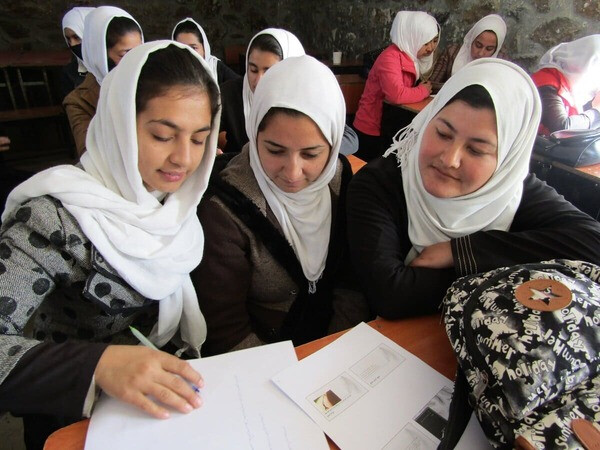
Kabul, Afghanistan – In a nation where opportunities for women are increasingly curtailed, Mahsa, a resilient young Afghan woman, embodies the unwavering spirit of those determined to pursue education and contribute to their society. Her journey, however, has recently encountered a significant setback, highlighting the precarious nature of progress in Afghanistan.
"Education means equality and freedom to us," Mahsa, in her early twenties, stated. "Without it, my friends and I don't have a future."
Mahsa's story began with promise. Born in Herat Province and later moving to Kabul, she grew up during a period when Afghan women saw expanding opportunities. She excelled academically and secured a professional position with a humanitarian organization while pursuing her undergraduate degree in business—a rare feat in today's Afghanistan.
However, the de facto authorities' takeover in August 2021 drastically altered her reality. Restrictions on women's education, including the ban on girls attending secondary school in March 2022 and the subsequent ban on women attending universities in December 2022, threatened to derail her academic aspirations.
Despite these challenges, Mahsa demonstrated remarkable determination. She transferred her credits to an online degree program offered by the American University of Afghanistan, operating from Qatar. This initiative, funded by the U.S. Agency for International Development (USAID), provided a lifeline for Afghan women seeking to continue their education. Mahsa's exceptional academic performance earned her a prestigious scholarship within the remote-study program.
Balancing full-time work with rigorous online coursework, Mahsa's days were filled with early morning classes, lunchtime study sessions, and late-night assignments. Her dedication stemmed from a deep-seated desire to contribute to her community. Inspired by her father's unwavering support and her early exposure to humanitarian aid, she aspired to a career where she could make a tangible difference.
"I want to grow and have a career in a field where I can genuinely help people and make a positive difference in their lives," Mahsa explained. "For me, access to education and the right to work are key. I wish that not only for myself but all other women in Afghanistan."
Her commitment to humanitarian work was ignited in her youth when she witnessed the impact of UN assistance on her classmates. This experience, coupled with her university studies in human rights, solidified her desire to work in the humanitarian sector.
However, a recent development has cast a shadow over Mahsa's aspirations. In January 2025, the U.S. government announced a pause in foreign assistance, abruptly halting USAID-funded programs. This decision immediately impacted Mahsa's scholarship and the American University of Afghanistan's remote-study program, leaving her and countless other Afghan women in limbo.
"Overnight, her program and all online classes were suspended. To date, Mahsa does not know how and when she’ll be able to complete her bachelor’s degree."
The sudden suspension of these programs underscores the fragility of educational opportunities for women in Afghanistan. While Mahsa's resilience remains unwavering, the future of her education, and that of many other Afghan women, hangs in the balance. The international community watches as the de facto authorities continue to enforce restrictive policies, and as critical aid programs are disrupted, further limiting the potential of Afghanistan's women.
Mahsa's story is a stark reminder of the challenges faced by Afghan women striving for education and equality. Her determination, however, serves as a beacon of hope, highlighting the enduring spirit of those who refuse to be silenced.
[Copyright (c) Global Economic Times. All Rights Reserved.]






























